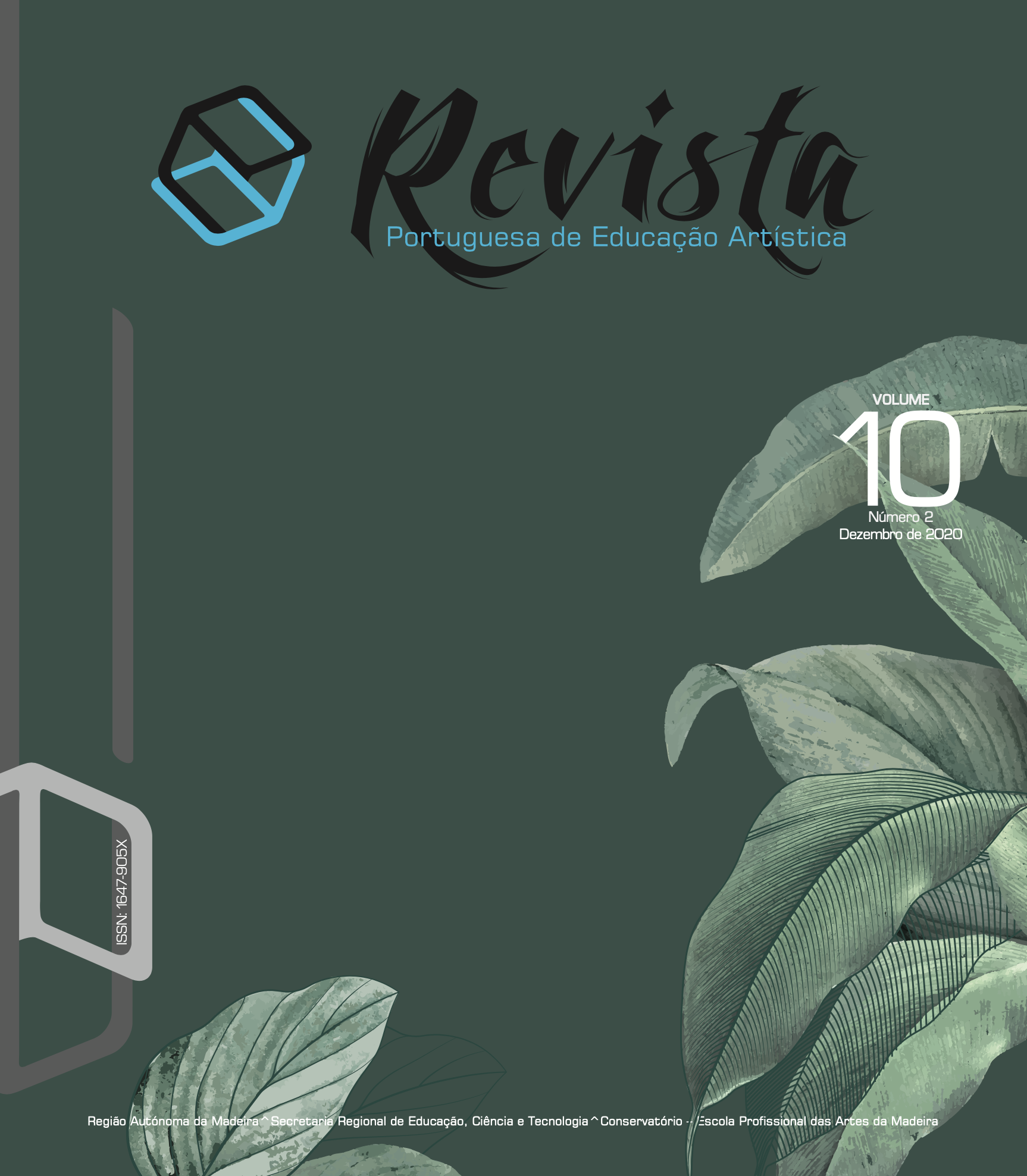Vol. 10 No. 2 (2020): Portuguese Magazine of Artistic Education

As usual, the current issue of the RPEA presents a varied set of articles on education and the arts, which demonstrate the wealth of research and the state of the art in this field.
The opening article “Musical Self-Efficacy Scale for Instrumentalists and Musical Singers”, by Carlos Damas, seeks to build and validate an innovative scale, with the purpose of self-efficacy and sources of musical self-efficacy in instrumentalists and singers. Considering that good levels of self-efficacy favor learning and performance, the importance of this new scale applied in the field of classical music is understood.
Still in the musical domain, the article by the researcher Marta Moreira seeks to understand the structural problems that affect the Specialized Artistic Teaching of Music, which hinder the achievement of the objectives that the same teaching proposes, while simultaneously trying to propose some elements for its restructuring.
In the field of dance, researchers Ângelo Cid Neto, João Fernandes and Madalena Xavier bring, in this issue, a reflection on the training of students in their teaching-learning process in the context of artistic education.
Flexible curriculum management is the theme addressed by the professors at the University of Madeira Natalina Cristóvão and Ana França. The researchers share the perceptions and practices of teachers in the arts areas who participated in the pilot project of flexible management of the curriculum, in six schools of the 1st CEB of the Autonomous Region of Madeira.
Based on Johann Wolfgang von Goethe's proposal for observation of nature, the researcher at the University of São Paulo, Arley Andriolo, brings together some elements of the History of Arts that allow us to understand the main aspects of sensitive knowledge.
In the area of project dissemination, the article “Cant(a)eiro and Flormiga: Report of Two Music Projects with Plants in School Environments” stands out, in which two projects are presented that aim to offer new ways of relating to musical practice and music education, particularly through interaction with plants
Finally, the RPEA volume 10, number 2, ends with a tribute by Teresa Norton Dias to the dancer Carlos Trincheiras, who addresses the legacy left by this Portuguese choreographer in Brazil.



